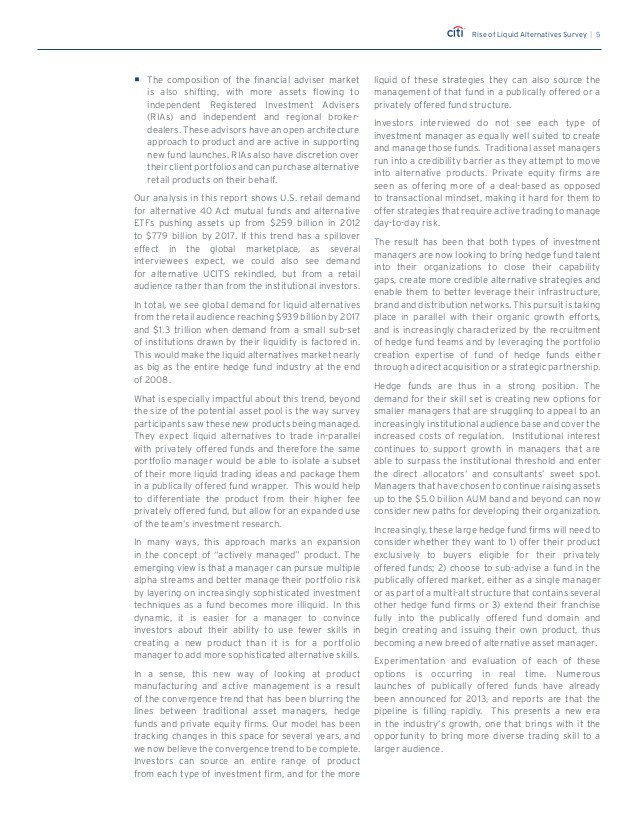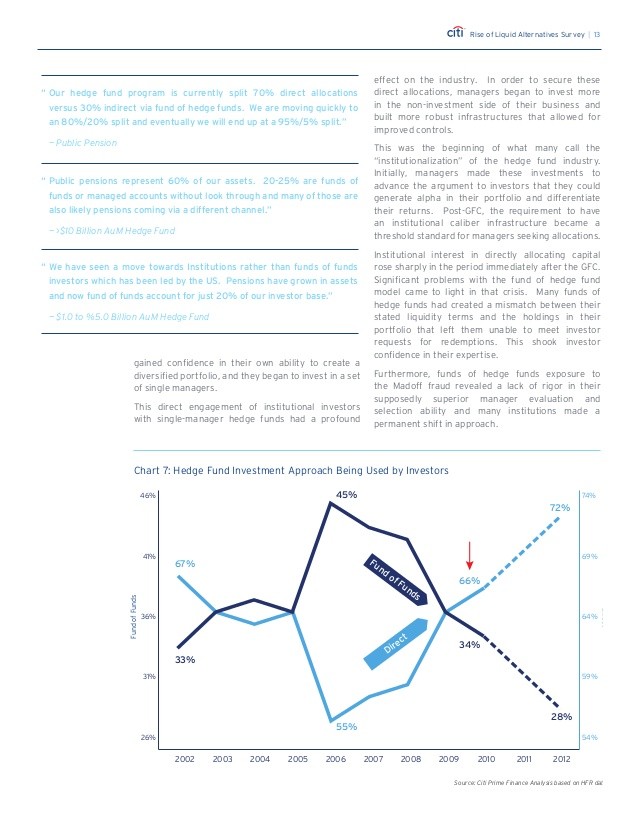2013 Will be year of 40 Act Funds predicts Citi Prime Finance
Post on: 16 Март, 2015 No Comment

Categories:
04 Feb, 2013
Citi Prime Finance has predicted more hedge funds will adopt 40 Act Fund structures as they seek to broaden their distribution channels and appeal to conservative, fee conscious pension funds and retail clients.
“40 Act funds appeal to conservative institutional investors such as pension funds as they use very little leverage, do not charge an incentive fee, have a powerful board of trustees and utilise a custodian. They are almost equivalent to a US version of Ucits, and they are an extremely controlled investment vehicle,” said Richard Webley, a director in the business advisory services group at Citi.
40 Act Funds’ inherently conservative nature often means they’re returns are highly beta-centric. Nonetheless, this will certainly appeal to some investors, which are reluctant to take on the risk of a leveraged hedge fund. It also means these vehicles are relatively inexpensive compared to hedge funds.
“Whereas a hedge fund will typically charge 2% and 20%, a 40 Act Fund will charge a management fee of around 1%, and no performance fee. Some hedge fund managers including AQR raised significant sums of money when they launched their 40 Act Funds, and 1% of that capital raised is a stable income for those managers,” commented Sandy Kaul, US head of business advisory services at Citi.

Several hedge funds launched products wrapped in 40 Act structures in 2012 including Blackstone and Permal Asset Management. These products are also likely to target pension funds, high net worth individuals and retail investors via brokerage platforms.
Webley added the JOBS Act would help enable hedge funds to market both their institutional products and 40 Act products. “The JOBS Act will help managers market and advertise both their private fund vehicles and public vehicles, and this will help facilitate investment,” he said.
However, sceptics point out that 130/30 funds did not take off, and have warned that 40 Act Funds might meet a similar fate. 130/30 funds proliferated just before the crisis and some argue their failure was attributable to the adverse market conditions they were operating in. Others pointed out they were just marketing tools and the managers running them lacked the short-selling skills required to make them work.
In terms of other regulated products, both Kaul and Webley said interest in Ucits would increase, but cautioned it would not happen in the short-term. “US managers launch Ucits usually when a single, large European investor asks for it because they are not allowed to invest in a straight hedge fund strategy,” said Webley.














